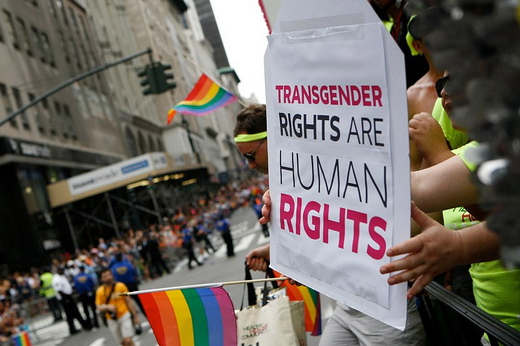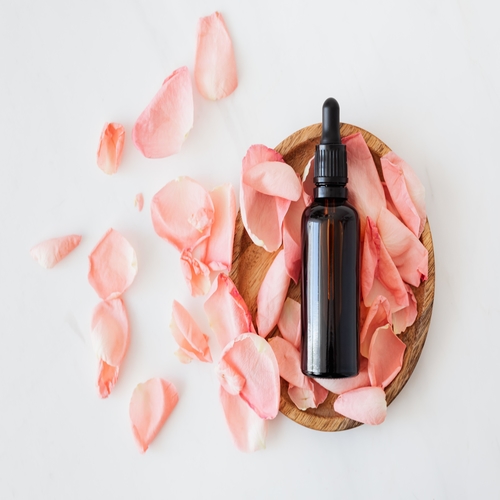Here is the summary of important news and copyright texts that will be published monthly for those interested in what is happening in Croatia in terms of feminism and politics.
NEWS
19 Jan 2017, 10:27 Darja Galović
Lecture by Dr Dubravko Lepušić
Right to Abortion: Personal Opinion Cannot Trump Patient’s Rights
Responsible sexual behaviour, protection from sexually transmitted diseases, adolescent sexuality, and the burning issue of the right to abortion – were the topics of the lecture “Health Education – Responsibility, Health and Prevention” by Dr Dubravko Lepušić held on 16th December at the Zagreb Faculty of Humanities and Social Sciences.
Dr Lepušić first spoke about the adolescent sexuality and protection of reproductive health. Since the 1960s, young adults become sexually active at an earlier age, and are more promiscuous, which results in sexually transmitted diseases and complications. According to the statistics of the Croatian Institute of Public Health, girls have their first sexual intercourse when they are 17, and boys with 16. As much as 67,3 % of youth want to engage in a romantic relationship next summer, and every third informant is comfortable with one-night stand.
According to Dr Lepušić, Croatian adolescents lack proper education, which leads to pregnancy, abortion, sexual violence and STDs. Parents have difficulties accepting sexual education due to the consumer mentality and relativization of moral values, while health education in Croatia also suffers from ideological attacks.
Lepušić emphasizes that the education of youth has to include interesting topics, clear texts and participation from medical professionals. Sexually responsible behaviour includes stable, faithful relationships, use of contraception, postponing too early start of a sexually active life, less sexual partners, and avoiding sexual contact with persons who have a risk of STDs. Lepušić spoke of the educational project “Knowledge is Pleasure” about the prevention of violence and addiction, and sexually responsible behaviour, in which young people can take part through editing websites, lectures, etc.
The second part of the lecture focused on the right to abortion. In six out of 28 health institutions in Croatia today, the right to terminate pregnancy is not available due to conscientious objection, which is silently supported by the government – and which Dr Lepušić strongly opposes because “you cannot put your personal opinion above patient’s right”. “When women are denied the right to autonomy and dignity, this opens the door for coercion, punishment of different lifestyles, refusal of recommended medical procedures and avoiding diagnostics.”
The best chances to legally terminate pregnancy are in Scandinavia, Estonia, Belgium and the UK. There are around 1,2 million terminations in the EU annually, and between 4500 and 5000 in Croatia, but it is estimated that one half of the cases goes unreported – which still puts Croatia at the bottom of the list in the EU states. Lepušić added that a legal ban of abortion leads to illegal abortions which endanger women’s health and lives.
**********************************
17 Jan 2017, 12:04 Trans Aid
Harmful Media Reporting
How (Not to) Report on Transgender People – the Case of Ivana Zdravka Radoš
Due to the increasing interest of media for transgender topics, and especially due to the sensationalist media approach in the case of Ivana Zdravka Josipa Radoš, Trans Aid invites all media to unite around the protection of rights of and responsible reporting on trans people.
According to the research of Zagreb Pride “Brutal Reality” from 2013, which included 690 LGBTIQ people from Croatia, as many as 37,8 % experienced some form of violence based on their gender/sex identity. As an organisation that advocates protection of the rights of trans, inter and queer people, we are concerned about the media reporting on I. Z. J. Radoš, which has predominantly been sensationalist, and clearly ridiculing her trans identity, ignoring her chosen name and addressing her in the wrong gender.
Radoš has 120 legal charges filed against her, and has recently been sentenced for threatening a reporter of the show “Provjereno”, which first started to report on this case, and our intention is not to defend this person’s criminal actions.
However, we wish to foreground that the media predominantly kept Radoš’s trans-identity in focus, and also questionedand denigrated it. Instead of her criminal activities, the media focused on her gender, in the worst possible way. Her transgender identity was seen as a manipulation, the media refused to address her in the female gender and by female name, and she faced a public ridicule during the trial.
To avoid such media stigmatisation and denigration of transgender people in the future, who are already one of the most vulnerable groups, we invite the media to always use the name which a transgender person has chosen (not Tito Gubić but Ivana Zdravka Josipa Radoš), the personal pronoun which corresponds to the person’s authentic gender (if self-identified as a woman, than ‘she’), and to avoid defamatory terms to describe the transgender person or the process of transitioning (it is not a ‘lie’, ‘manipulation’ or ‘mask’). Self-determination is a human right that must not be ridiculed.
More information on trans terminology can be found on our website.
****************************
17 Jan 2017, 11:19 CPS
Actionof the CPS and the ‘Welcome’ Initiative
What is More Important – Person or ID?
{slika}
The Center for Peace Studies and the Welcome! Initiative held placards today in front of the Croatian Parliament to bring attention to the newest changes in the Immigration Act, which criminalize all attempts to help immigrants during their stay, transit and in illegal border crossing.
This means that citizens who wish to help an unknown individual in need might risk punishment. Although after public discussion, the Ministry of the Interior, which proposed the changes, added exceptions that will not be considered punishable, there are still ambiguities left. We believe that help which does not result in any material or financial gains for the helper, but is guided by moral and humanitarian principles, in the situations of protection of life or integrity of an individual who crosses the border or stays in Croatia illegally, should not be punishable – and not just in the sanctioned cases of saving life, preventing injuries, providing emergency medical help and humanitarian help.
It is necessary to prevent situations where it is not clear if a citizen who buys food for a hungry person in the street or drives them to a doctor is breaking the law.
We appeal to the Ministry of the Interior to add to the Immigration Act that helping people in need is not punishable, and to the Croatian Parliament to pass an act granting that no one is punished who helps someone and has not asked them first to see their ID or residence permit.
******************************
16 Jan 2017, 08:07 Libela
We Do Not Want to Live in the Middle Ages
Anti-choice Billboards Fixed in Rijeka Too
{slika}
After the successful night guerrilla actions in Zagreb and Split, the anti-choice billboards ‘I Want to Live’ were yesterday fixed in Rijeka too, and the message (of a foetus) ‘I Want to Live’ was changed into ‘I Don’t Want to Live in the Middle Ages’.
Previously, activists from Zagreb already reacted to the campaign of the group Vigilare and the Croatian Movement for Life and Family, which targets women’s reproductive rights in Croatia, by correcting the manipulative messages in several locations into ‘I Want to Choose’ and ‘I Want to Live in a Secular State’.
Zagreb was then joined by Split, where dissatisfied citizens intervened on the billboards with red paint, and left a placard on the fence of the Institute of Public Health in Vukovarska Street saying ‘We Want Our Reproductive Rights, but Have No Money for Billboards. Women’.
******************************
10 Jan 2017, 17:19 Libela
Application of Sanctions from the Act on Gender Equality
CESI to Political Parties: Take Responsibility for Political Participation of Women
{slika}
Center for Education, Counselling and Research (CESI) addressed a letter to the political parties, informing them that the sanctions from the Act on Gender Equality have now started applying. The full text of the letter is the following:
Local elections are ahead of us, in which the sanctions defined in the 2008 Act on Gender Equality will apply for the first time. The 9-year postponement aimed to give time to the political parties to improve women’s participation in political processes. In the local elections in May 2017, the political parties will be fined for each list on which there is less than 40% of the underrepresented gender (Article 12 and Article 15) – 20 000 kuna for a Municipality Council list, and 40 000 kuna for a City or County Council list (Article 35).
In the last 15 years, political participation of women in Croatia has been deteriorating despite the legal initiatives which aimed to improve the number of women in the political decision making at local, regional and national levels. In the last local elections in 2013, the candidates’ lists for the County Councils had 2747 women, which equalled 32 %. Inspite of the increase of women candidates since 2009, the number of won terms of office in the County Councils fell from 23 to 21 %. The highest numbers of women were elected in the Councils of Istarska, Varaždinska, and City of Zagreb Counties, and lowest numbers in the Zadarska County.
At national level, the Parliamentary election lists showed a slight increase in the numbers of women until the 2015 and 2016 elections, which reversed the trend and decreased the women members in the Parliament. The 2015 elections resulted in the least number of women in the Parliament in the last 10 years, and after the 2016 elections the numbers plummeted to the situation of the 1990s. Although generally it looked like the gender quota in the candidates lists was met, only small numbers of women were actuallyelected (only 15,23 % in 2015, and 12,5 % in 2016). Due toignoring the gender quota, putting women at the bottom of the lists where they have no realistic chances to win a term, and the fact that mostly smaller parties and not the big ones met the quota, it is not surprising that the numbers of women in the Croatian Parliament are extremely small and at the bottom of the EU trends.
We hope you will take responsibility and in creating the candidates list implement the Gender Equality Act and thus contribute to the democratic development of Croatia.
*****************************************
4 Jan 2017, 11:27 Ana Benačić (N1)
Agreement Between Public Hospital and Church Institution
What Does Cooperation between CUC and Fran Mihaljević Clinic Entail?
{slika}
The clinic for infectiousdiseases “Dr Fran Mihaljević” and the Catholic University of Croatia recently signed a cooperation agreement without explaining the details. A holy mass was held at the clinic.Only a short statement was published at the Clinic website:
“Director of the Clinic for Infectious Diseases ‘Dr Fran Mihaljević’, Prof Dr Alemka Markotić, and the Rector of the Catholic University of Croatia, Prof Dr Željko Tanić, signed an agreement on cooperation in the areas of scientific research and professional activities, the undergraduate, graduate and postgraduate teaching, and the practical education of students in the Clinic.”
N1 is awaiting response from both institutions on what the agreement entails, and its financial matters, considering the controversies around the last year’s forceful attempts for an agreement between the Faculty of Humanities and Social Sciences and the Catholic Faculty of Theology. Also, the Clinic website states that Msgr Ivan Šaško of the Zagreb Archdiocese led a holy mass on Thursday, 29 December 2016 on the premises of the Clinic for Infectious Diseases “Dr Fran Mihaljević”.
It is interesting that the Catholic University of Croatia in the academic year 2015/16 initiated a new undergraduate and graduate programme in biomedicine and health, alongside the existing programmes in theology, sociology, psychology etc. The graduate nursing school will provide students with advanced scientific and professional competencies in nursing, based on evidence – it is stated on the website.
“Since the nursing programmes are part of a Catholic university, students acquire biomedical knowledge not just as a scientific discipline, but as part of a humanistic approach that takes care of a sick individual. Therefore courses in the theology, philosophy and ethics of nursing, as well as health psychology and mental health, with emphasis on palliative care, will enable a different profile of nursing practice than it has been offered so far in the Croatian educational system”, Marta Čivljak, Head of the Nursing Department said.
American as well as German experiences of patients in the church-owned hospitals tell us of various problematic issues. In Germany, for example, there have been cases of rejections of raped women, who after an examination and report to the policeasked for ‘the morning after pill’, while abortion was completely out of the question. More than one million employees in the Catholic and Protestant sponsored public institutions risk losing their jobs in the cases of divorce, medically assisted fertilisation, support of sexual minorities, or practicing what is considered vice.
But what is potentially more controversial in the Croatian case is the fact that Fran Mihaljević is a public hospital, and not owned by the Church.
The agreement has been made between a public institution, financed by the tax payers’ money, and a religious institution – and therefore should be made public.The Clinic is an educational setting for the Medical School and now it has become the educational setting for the CUC.
It is extremely important that the public is informed of the ways in which the two institutions will cooperate professionally, in the areas of prevention, diagnostics, treatment and rehabilitation. The Clinic includes an AIDS center, while the Catholic Church opposes the use of contraceptives. There are LGBT members among the clinic’s patients, and the Church has a discriminatory attitude towards the LGBT community.
It is crucial to know whether the cooperation ensures that the medical practice in the Clinic will follow scientific principles, or be based on Catholic teaching.
**********************************
18 Dec 2016, 18:06 Libela/WF
Discrediting Positive Heritage
Action of the Workers’ Front in Jasenovac Against Celebrating Ustasha and Fascism
{slika}
The full statement of the Workers’ Front on today’s action in Jasenovac:
Celebrating the Ustasha and fascist regimes in Croatia is not happening because some people love history, and particularly the criminals who served “the supreme Aryan race”.
Neo-fascism is taking hold in order to pre-emptively discredit all the positive developments in former Yugoslavia – such as workers’ rights, public health and education systems, democracy in the work place, etc.
Such discrediting of the past is happening so that no one today should attempt to seek a society of equality, solidarity and social justice. They will immediately be named a Yugoslav sympathiser and communist, and ultimately, targeted by the Neofascist groups, which celebrate the great Croatian glory (which was subordinate to Germany and Italy) but actually serve to maintain capitalism in place.
While Todorić and other capitalists live in castles and drive around in helicopters, and the masses run out of the country or eat from dumpsters, those who could rebel against such thieving system will be controlled by the Neofascist mercenaries.
The real purpose of neo-fascism is for you to remain capitalists’ slaves, and find solace in shouting “Croatia, Croatia!” while the fascist boot is smashing your teeth.
*******************
EVENTS
OVER THE FENCE
11 Jan 2017, 17:49 Iva Zelić
Hoping to Cross into Hungary
Serbia: Around 1000 Refugees are Freezing on Minus 20 Celsius
{slika}
Refugees from Afghanistan, Pakistan and other countries, including children and teenagers, are spending the winter in Belgrade in the open, on temperatures that reach minus 20.
It is estimated that around 7000 refugees are currently in Serbia. The shelters are overcrowded and therefore admit only women and children. The rest get by as they can, and more than 1000 occupy abandoned warehouses, garages and shelters close to the bus and railway stations in Belgrade. In order to warm themselves, they burn wood or plastic which they can find, and hundreds sleep on the floor. They stay in Serbia for anything between a few days and a few months. Some head towards Hungary and are sent back, while new people are arriving every day. They live in fear of deportation to Macedonia and Bulgaria.
“It is very cold and we need fire. Humanitarian workers give us food, but it is still very cold outside as well as inside,” Salim Shinauri from Afghanistan said for the Huffington Post.
“People are suffering, they get numerous respiratory infections”, Milana Radosavljević said, member of the Doctors Without Borders, who brought heaters in front of one warehouse to prevent freezing.
The refugees go through all this in hope of seeking an asylum in Hungary, of being among the 10 lucky ones per day who are allowed to enter the country. Hungary showed clearly that it does not want to accept refugees. Prime Minister Viktor Orban ordered the building of a barbed wire fence, and thousands of police officers and soldiers are monitoring the border with cameras and helicopters. The refugees keep coming nevertheless. Hungary registered 30 000 asylum requests last year, and granted less than a half of them. That is, 20 000 people have been rejected and they are trying to enter illegally. Most men in Belgrade once or twice a week try to cross the border. But even if they cross and are caught within a 5 kilometer area, they are sent back.
“I crossed the border illegally after spending more than five months in a shelter in Pančevo. I had no water or food while being hidden for six days. Then I had to eat something and the police caught me”, Kashif Raza from Pakistan said. Besides Serbia, refugees in Greece also suffer from harsh conditions and very low temperatures.
**********************
INTERVIEW
8 Jan 2017, 23:49 Svjetlana Knežević
Handbook for Girls
Do Feminism: Encourage and Empower Girls and Boys in Their Curiosity
{slika}
A handbook for girls entitled I Do Feminismby the authors Marina Veličković and Lamija Begagić has been published recently. The book aims to introduce girls to feminism, by presenting non-stereotypical female and male characters, marginalized communities and families, situations and problems that girls indeed encounter every day, but the patriarchal societies in which we live discourage and silence women’s voices. While we are waiting for our own copy, we found out from Marina Veličković why I Do Feminismcan be recommended to everyone.
How did the handbook come about?
In May 2016, Lamija Begagić gave a lecture “Feminism for Beginners”to female pupils in several primary schools in Gradačac. The girls’ reactions were so great that afterwards, the editor of Školegijum, Nenad Veličković, and Lamija contacted me with an idea to create a handbook which would be an introduction to basic feminist issues. In the early summer Lamija and meworked out the main ideas – that the book would contain a diary and a glossary, that the diary should be written in colloquial language, and that the story would begin on the first day of Likica’s first period.
What does I Do Feminism aim to accomplish?
The handbook is primarily didactic. The aim is to familiarise girls with the main terms and ideas of feminism in a fun and accessible way (therefore it is written in a colloquial language and in a diary form), to let them see differences between theory and everyday feminism, and to offer them potential solutions to everyday challenges which they face just because they are girls.
What content can girls and boys expect to find?
The handbook consists of two parts – diary and glossary. Likica writes a blog, in a relaxed, colloquial language, and discusses school, her school crush, sister and family, but also various challenges she has to deal with – such as different social expectations from girls, buying her first bra, changing a pad in the school toilet, etc.She has an older sister who is a feminist and introduces her to why feminism is important. Likica also writes about topics she researches on Google, such as the history of bra and pads, or women scientists. The glossary is written more conventionally, and aims to introduce terms such as patriarchy or reproductive labour, but also the history of feminist movements, etc.
For which age is the handbook written?
Girls between 12 and 16 are the target group, but also their mums, sisters, aunts and teachers. The handbook is also recommended to boys – Likica’s best friend Slatki is a feminist, her dad wants to find out about feminism, and her aunt’s partner recommends feminist series and films to her. One of the key messages is that feminism is not just a women’s issue.
During school education, girls read books in which women are frequently represented in a stereotypical way or are marginalized. Additionally, our schools do not introduce children to feminism and human rights struggles. How do you think this handbook, with a different agenda, will find its way to children’s reading lists?
We wanted to have characters who are multidimensional, interesting and not always likeable. Likica is sometimes a nerd, often bites her lip instead of replying, is often confused and insecure, but she is also witty, brave and sensitive. It was also important to us that her sister is a lesbian, her aunt has no children, has a partner but is not married, and that her best friend’s parents are divorced – so that we can show different forms of partnerships and family that exist in the society, and are not represented in most books which girls and boys read. For now, girls and boys will have to rely on the adults to get their book copy, but we are also planning to have several book presentations across Bosnia and Herzegovina, where we will discuss Likica, feminism and education.
I think getting the handbook to boys and girls (especially once it becomes available through an online blog) will be much less of a problem than having it put on the school syllabi. For the formal education to become feminist,we need a secular system – and as long as the system enforces traditional and patriarchal values, with religious classes instead of a sexual education, we cannot speak of the opening of the horizons.
In such a patriarchal and conservative context, how have girls responded to Likica and feminism?
The first response came from Anuška, a 12-year-old from Zadar, who read the book ‘in one breath’ (to quote Anuška’s sister) and who liked that Likica was as smart as her. I thought that was a brilliant reaction because it is important that girls are encouraged to be ever more curious, informed and creative. Other than this, we mostly got responses from mothers, which were positive. We hope that the blog will be a safe space where girls could ask questions and comment.
The handbook is written in a gender-sensitive language.
Yes! It is written colloquially, but in a gender-sensitive way. Already in the first chapter, Likica emphasizes that she is Lik-ICA (female noun), and then asks her Bosnian language teacher why Hasanaginica is called after her husband and whether she has her own name.
How many book copies have been published and where can we find them?
2000 copies have been published and can be found together with the ‘Školegijum’ journal at the newsagents in Bosnia. We do not have a distributor for Croatia, but if some girl really wants to have a copy, let us know and we will think of something. In the beginning of February, Likica will continue writing her blog, this time online, and there will be space for comments and discussion. More details will be available on the Školegijum Facebook page in the next few weeks.




